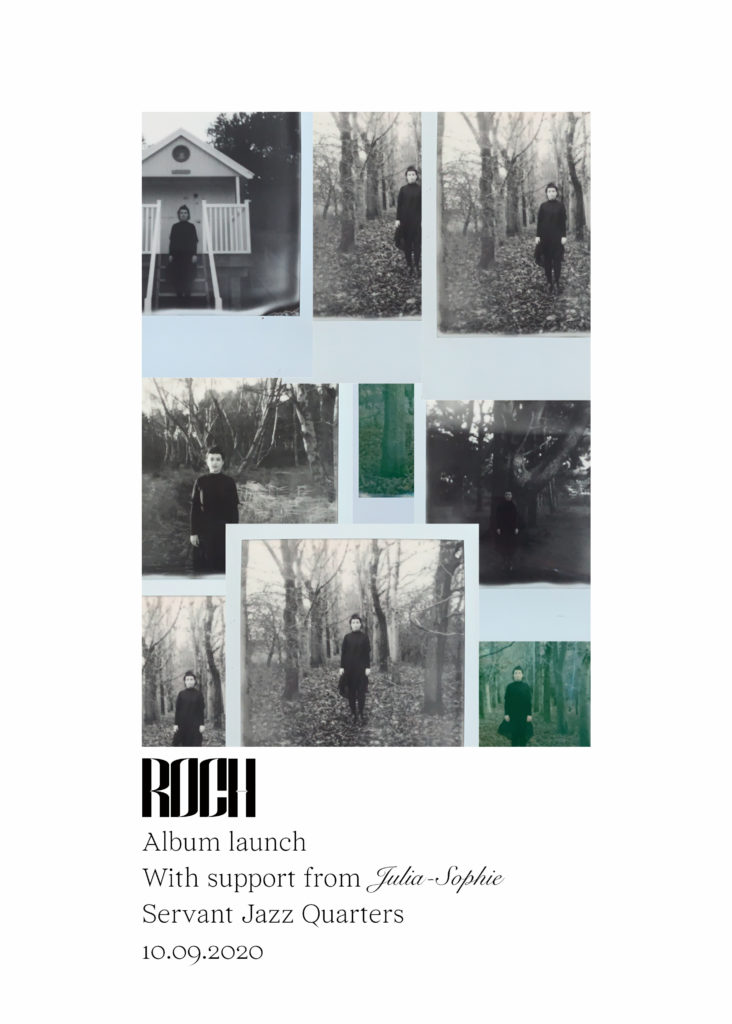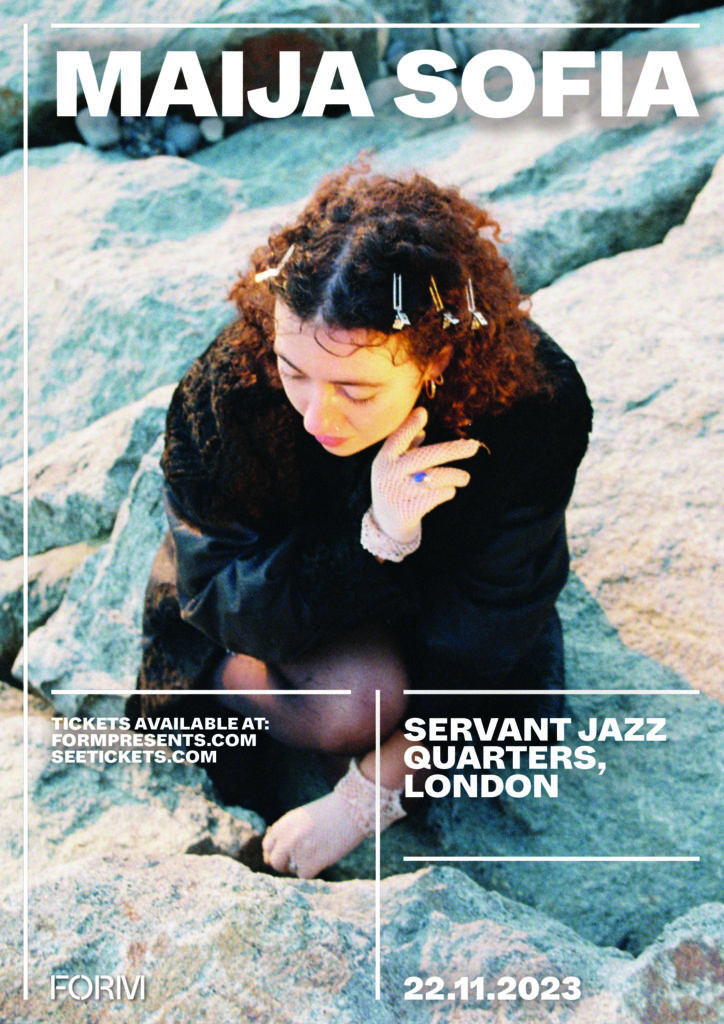
Roch
London-born and based singer, songwriter, producer, and multi-media artist Kate Miller is fascinated by crossovers of space and language, and by rethinking the “mundane and ubiquitous ideas” found in every day life. The bridging of grand scale and domestic scale is a concept Miller has been exploring in her work since her time studying performance and sculpture at University of the Arts London’s Central Saint Martin’s college, and continues to probe in the impassioned synth pop she makes as ROCH.
The now 24-year-old Miller started playing around with synths and software once she got to university, where she studied sculpture and spatial practice. She began playing with music in her art pieces — exploring the behind-the-scenes spaces in the music industry within her sculptures and performance-based work. The pieces she created had to do with “how songs are written, and what collaboration means.” They’re about structure and duality, situating music objects in spaces they wouldn’t typically be found.
Following Miller’s graduation from university in 2017, she collected sounds during artist residencies based in “derelict office spaces” (her pitches were about work culture), that would later become the foundation of Via Media. With the sounds she collected during this time, Miller created the percussion and rhythm for Via Media, giving the record’s atmosphere a mechanical sound, contrasting with Miller’s own mercurial, sensual voice.
“Via Media,” a slinky, melancholic pop song, was also partly inspired by a small drawing of a violin by the Polish artist Franciszka Themerson. “Untangle our selves from what’s feared,” she sings, breathily, over soft synths and a staccato beat. “We are tipping / While we’re missing / Sounds of violins and roads / Keeping our distance yet welded so deep.” She made a short film to accompany the song, in which she plays the violin in the middle of adual carriageway road. Fitting with her love of dual meanings, “Via Media” also evokes its 21st century logged-on meaning: communicating through media, living so much of life on the internet.
Miller’s interest in the lofty versus the mundane stems from her religious background as well. Roch was Miller’s confirmation name, after St. Roch, the patron saint of the plague. Miller grew up going to Catholic school, and studied 13th and 14th century medieval art history in school. She’s captivated by medieval art, patron saints, and religious paraphernalia, and the way those emblems manifest in every day life. “The music is influenced in a lot of ways by sacrifice,” Miller explains. In line with depictions of Catholicism and sainthood, the songs on ROCH’s debut album, Via Media, often deal with sacrifice of the body—taking that quintessential religious image into the every day. Instead of the sacrifice being for God, it’s for family, career, or comraderie. “Rather than this saintly sacrifice being these dramatic Catholic ascension-type scenes, it’s work, labour, pregnancy.”
On “T-Rose,” Miller contemplates childbirth and motherhood: “What happens if I have a child, or lose a child?” She imagines a “grim birth,” and the absence of a child; she imagines playing games with this child, and allowing the child to enter the recording process. On the steady, poignant “All-Time Favourite Girl,” which is smattered with spoken-word Miller examines relationships with women, with mothers, daughters, and specifically with her all-women coworkers. She ruminates on the sacrifices made to work, and how those sacrifices affect her fellow laborers. “When I sit and listen to you / I know exactly what you mean,” Miller croons. “I wish I could say it myself / We’d be a team / My mind is warped / And yours if full of hope and good things.”
In the video for the song, which Miller helped produce, a group of headless pregnant mannequins cavort and unite in an endless dystopian office space. “The office space determines how they interact with each other,” she explains. “Throughout the video the come together as a big team, and rely on each other to prop themselves up.” It’s about support networks, and social tendencies within groups of women. How being physically close leads to solidarity and community, to survival through adaptation, to reclamation of objects and space. Likewise, the song “I Love To You,” deals with women and social constructs; the languid track was inspired by a phrase coined by feminist writer Luce Irigiray, in an attempt to rephrase and reposition “I love you” in order to liberate language with a goal to arrive at a new inter-subjectivity between men and women.
With her background in performance and sculpture, both meticulous practices, she’s particularly interested in routine, and the way it can become embedded in your life, engrained and inescapable. “The workings of an office, from the spatial dynamics, materials, tools, to the arrangement of bodies, is something that crosses over to both the domestic space and the recording space.” This notion carried into the writing of Via Media. When constructing the record, she was in people’s flats, tinkering with songs in kitchens, gripped by how domestic spaces can become work spaces, too: when “a kitchen utensil is in a recording environment,” she explains, there is a “crossover of space and language.”
The record was produced with Ben Christophers (Bat For Lashes), in the front room of his house. Using Chrisophers’s healthy collection of analog synths, the pair of them “found four core sounds [they] really liked, and ran with those,” which were then embedded with Miller’s vocals and homemade percussion. “He always had family ‘round, we were always in the kitchen,” Miller explains of the album’s softer atmospherics, further reflecting her interest in crossover spaces. “I really wanted to pick up on these domestic sounds, these sounds of family. Ben’s inquisitive five-year-old daughter was in it a lot, too. Kind of a journey it went on. It’s been a labor of love for everyone involved.”


